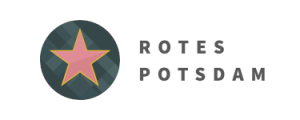++ english version below +++
INFORIOT Die Zentrale Aufnahmestelle für Asylbewerber in Eisenhüttenstadt (ZAST) ist erste Station für Asylsuchende in Brandenburg. In den vergangenen Monaten gab es verschiedene Meldungen über die Situation in dem am Stadtrand gelegenen Komplex, dem auch ein Abschiebegefängnis angegliedert ist. In einem ZDF-Beitrag wird die umstrittene Abschiebepraxis deutscher Behörden thematisiert, von der auch u.a. serbische Roma-Familien in Eisenhüttenstadt betroffen sind. Der Flüchtlingsrat Brandenburg kritisierte im November vergangenen Jahres die Polizeipraxis, vermeintliche Asylsuchende noch vor ihrer Ankunft in der ZAST zu kontrollieren und ihnen so den freien Zugang zur Asylantragstellung zu verwehren. Ein Grund, warum die Polizei sich wieder dazu entschied, bewusst gegen die Genfer Flüchtlingskonventionen zu verstoßen, könnte die steigende Zahl von Geflüchteten sein. So leben laut einem RBB-Bericht derzeit fast 500 Menschen auf dem Gelände. Im Durchschnitt sind es sonst 250 – 300. Mit Container-Behelfsbauten wurde versucht, mehr Platz für Asylsuchende zu schaffen. Außerdem wird von Schimmelbefall und katastrophalen hygienischen Zuständen in den Wohngebäuden berichtet. Mitte Dezember berichtete unter anderem der RBB von einer Auseinadersetzung zwischen Bewohner*Innen, bei der es Verletzte gab. Dem vorrausgegangen war ein Streit zwischen Kindern. Für lokale NPD-Strukturen war dies Anlass, ihr rassistisches Profil zu schärfen. Auf der Internetseite des Kreisverbandes Oderland wird von einer „Gewaltorgie“ und einer Bedrohung für die lokale Bevölkerung fantasiert. Außerdem kündigen die Neonazis Aktionen nicht nur in Eisenhüttenstadt an, um an vorhandene Ressentiments in der deutschen Bevölkerung Anschluss zu suchen.
Inforiot führte ein Interview mit zwei Asylsuchenden, die zurzeit in der ZAST in Eisenhüttenstadt leben.
Ali ist 38 und vor zwölf Jahren aus politischen Gründen aus dem Tschad in das benachbarte Lybien geflohen. Dort lebte er mit seiner Familie bis Ende 2011, sah sich aber aufgrund des Krieges gezwungen das Land zu verlassen. Die Familie floh über das Mittelmeer auf die italienische Insel Lampedusa. Zusammen mit 1200 anderen Flüchtlingen überquerten sie in einem kleinen Boot das Meer. Die Zustände auf der zwei tägigen Überfahrt beschreibt er als lebensbedrohlich: Menschen saßen und lagen übereinander, wurden krank und das Essen reichte nicht aus. Von Süditalien führte ihn dann sein Weg nach Eisenhüttenstadt, wo er seit einem Monat lebt und Asyl beantragt hat.
Der 22-jährige Achuo kam mit dem Flugzeug von Kamerun nach Europa, auch er wurde aus politischen Gründen in dem zentralafrikanischen Land verfolgt und wohnt nun seit zwei Monaten in Eisenhüttenstadt.
Inforiot: Was sind denn eurer Meinung nach die größten Probleme im Lager?
Achuo: Probleme gibt es viele. Das fängt zum Beispiel bei Übersetzungen an. Sei es nun bei behördlichen Dokumenten oder bei ärztlichen Untersuchungen. So konnte ich nicht verstehen, was das Resultat der Untersuchung war, als ich neulich einen Arzt im Krankenhaus aufsuchen musste. Auch das Essen ist schlecht und eintönig. Allgemein würde ich die Atmosphäre als gedämpft beschreiben. Das liegt nicht nur an den Lebensbedingungen im Lager. Als ich zum Beispiel einmal mit dem Zug unterwegs gewesen bin, wurde ich sowohl von der Polizei und auch später von einer Schaffnerin als Einziger im Wagen kontrolliert. Das verstehe ich nicht.
Ali: Ein wichtiger Punkt ist für mich die Hygiene. Die Toiletten sind fast nie benutzbar. Als mein Kind krank wurde und Durchfall bekam war das ein Problem. Wir sind zu einem Arzt gegangen, aber das hat uns nicht viel geholfen. Auch meine Frau war krank, doch beide wurden nicht richtig untersucht. Dann wurden uns Medikamente verschrieben, deren Wirkung uns nicht erklärt wurde. Und das ist nur ein Beispiel, es ist einfach so, dass unsere Anliegen hier oft nicht ernstgenommen werden.
Inforiot: Denkt ihr, dass diese Probleme auch Grund für die Auseinandersetzungen zwischen Bewohner*Innen Mitte Dezember war?
Achuo: Ja, es ist die ganze Umgebung hier. Auch die Ausländerbehörde behandelt die Leute nicht angemessen. Ist doch klar, dass die Menschen frustriert sind.
Ali: Niemand ist hierher gekommen um eine Schlägerei anzufangen. Wir sind doch hier weil wir ernsthaften Problemen entkommen sind und ein besseres Leben aufbauen wollen. Trotzdem können solche Situationen vorkommen. Viele Leute hier sind sehr mit sich selbst beschäftigt, weil sie traumatisiert sind. Dann sind sie enttäuscht über den meist negativen Verlauf des Asylverfahrens. Alle tragen hier Probleme mit sich rum und es gibt kaum Möglichkeiten diese los zu werden. Ich bin froh, dass es bis jetzt so friedlich hier ist.
Inforiot: Erfahrt ihr denn trotz der Anspannung und der Frustration auch Solidarität und Gegenseitigkeit untereinander?
Ali: Zusammenhalt ist auf jeden Fall da. Klar verstehen sich Leute manchmal nicht wegen der Sprachbarriere, trotzdem kommt man miteinander aus, wir sind schließlich alle in der selben schwierigen Situation. Ich denke alle Menschen hier sind gute Leute.
Achuo: Klar helfen sich die Leute, wir sind ja wie gesagt alle in der selben Situation. Wir machen auch Party’s zusammen und lernen uns kennen. Trotz der Sprachbarriere verstehen wir uns irgendwie und respektieren uns. Das selbstverwaltete Internetcafe ist ein gutes Beispiel. Hier kommen Leute zusammen, helfen sich gegenseitig, reden miteinander und respektieren, dass alle die Möglichkeit haben das Internet zu nutzen.
Inforiot: Was denkt ihr, wenn Leute aus Deutschland behaupten, ein Großteil der Asylsuchenden würde unter dem Vorwand politischer Verfolgung den deutschen Sozialstaat missbrauchen?
Achuo: Das bißchen Geld hilft mir hier nicht, das ist ja nur Taschengeld und es hilft mir auch nicht meine Probleme zu lösen.
Ali: Diese Denkweisen kenne ich, aber wer setzt denn sein Leben aufs Spiel um hierher zu kommen, nur für Essen und 40 Euro Taschengeld pro Monat? Ging es nur um das Geld oder Essen, hätte ich mit meiner Famile das Risiko nicht in Kauf genommen, dass wir während der Flucht eingegangen sind. Ich will einfach versuchen hier mit meiner Familie ein neues Leben aufzubauen. Ich habe nicht vor nocheinmal mein Leben aufs Spiel zu setzen. Besonders meine Kinder sollen eine neues, besseres Leben haben, dafür werde ich mich einsetzen.
Inforiot: Vielen Dank für das Gespräch!
______________________________________________________________________
„It’s obvious, that the people are frustrated!“
Interview with two asylum-seekers about the situation in the detention centre in Eisenhüttenstadt
INFORIOT The detention centre for asylum seekers in Eisenhüttenstadt is the first contact point for refugees who are coming to Brandenburg. Different reports appeared during the last months, especially about the situation in the complex, that is located in the outskirts of the small town, where also a deportation prison ist attached. A ZDF-report subjects the disputed deportation practices of german authorities. Also serbian Roma families living in Eisenhüttenstadt are affected by. In November the refugee council of brandenburg (Flüchtlingsrat Brandenburg) critizised the police controls between the railway station and the ZAST. These controls prevent the refugees from applying for asylum and having a free and fair asylum procedure. One reason, why the police decided to violate against the Geneva refugee conventions, could be the increasing number of refugees. According to a report of RBB, currently almost 500 people living on the site. The usual average is 250 – 300. More space is now created by container-buildings. Furthermore mold growth and disastrous hygienic conditions in the living areas have been reported. RBB reported in december on a violent disagreement between residents, where people got injured. The reason was a conflict between children. For local NPD-structures a reason, to clarify their racist profile. On their homepage the neo-nazi party fantazises about an „orgy of violence“ and a danger for the local population. Furthermore they are announcing actions, to build on already excisting prejudices and resentments within the german citizens.
Inforiot interviewed two asylum seekers, that are living currently in the ZAST in Eisenhüttenstadt.
Ali is 38 and escaped twelve years ago from political persecution from Tschad to the neighbouring Lybia. Till the end of 2011 he and his family lifed there, but when the war started, he was forced to leave the country. The family fled across the Mediterranean Sea on the italian island Lampedusa. Together with 1200 other Refugees they crossed the sea, in a very small boat. Ali described the circumstances on the two-days passage as life-threatening: people were sitting and lying on each other, got sick and the food did not last for everyone. From south-Italy Ali and his family fled to Germany and seeked in Eisenhüttenstadt for asylum.
The 22 years old Achuo came by plane from Cameroon to Europe. Also he was political persecuted in the central african country and lives now for two months in Eisenhüttenstadt.
Inforiot: What are in your opinion the biggest problems in the camp?
Achuo: There are a lot. It starts for example with translations. Whether it is with administrative documents or medical examinations. Once i had to see a doctor and I could not understand what the resulat of my examination was. I am also not satisfied with the food, it’s not tasty In generall i would describe the atmosphere in the camp as calm. And it has not only to do with the living conditions in the camp. Once for example I went by train and only I got controlled by the police and the train conductor. I don’t understand that.
Ali: For me an important point is hygiene. The toiletts are almost unsuitable. And when my child was sick and had diarrhea, that was a problem. We went to see a doctor, but it didn’t help so much. My wife got sick as well, but both were not examined correctly. That is only one example, it is just like that, that our concerns are not taken seriously.
Inforiot: Do you think, that these problems were also a reason for the confrontation between the residence last december?
Achuo: Yes, it is the whole environment here. Also the foreigner’s registration office threats the people not properly. It is obvious, that the people are frustrated.
Ali: Nobody came to start a fight, we are here, because we escaped from serious problems and to build a better life. However such situations can happen. A lot of people are very busy with their own situation, because they are traumatized, and then they are disappointed about their negative asylum procedure. I’m glad, that it’s so peacful here until now.
Inforiot: Despite the tension and frustration, do you recive solidarity and mutuality among each other?
Ali: For sure there is solidarity among each other. Of course sometimes people don’t get along with each other and the language-barrier also causes problems. Anyway we get along with each other, after all everybody is in the same difficult situation.
Achuo: Of course people are helping each other, as said, we war all in the same situation. We are having parties together and get to know each other. Despite the language barrier we understand each other somehow. The self-managed internetcafe is a good example, here people are coming together, help each other, talk with each other and respecting, that everybody has the possibility to use internet.
Inforiot: What do you think, when people from Germany state, that the majority of the asylum-seekers abuse the walfare-system under the pretext of political persecution?
Achuo: The little money does not help me here, that’s only pocket money and it does not help me to solve my problems.
Ali: I know this way of thinking, but who is putting his life to risk, for food and 40 euro pocket money per month? If it would only be about the money or the food, me and my family would not have taken this risk, that we took during the escape. I just want to try to build a new live with my family. I’m not planning, to put my life to risk again. Espacially my children should have a new and better live here and i will support that.
Inforiot: Thank you very much for the conversation!

